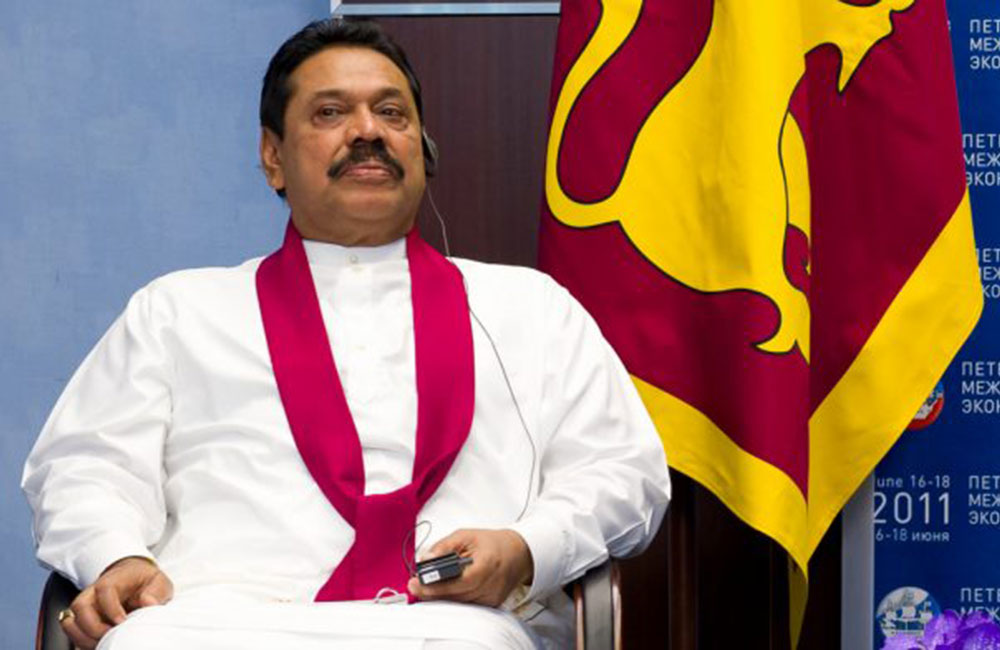The deadly Easter bombings that rocked Sri Lanka bring significant political and social implications to the forefront. The attacks, which have rattled most Sri Lankans, have added yet another layer of complexity to a country that has always faced sectarian divisions. And, the tragic events will clearly be exploited by the country’s political opposition, led by former Sri Lankan president Mahinda Rajapaksa.
Sri Lanka’s current president Maithripala Sirisena is extremely unpopular (and that’s been true for quite some time). Similarly, the present administration, led by the United National Party and its leader Ranil Wickremesinghe who is also the prime minister of the country, is weak and rudderless.
A Mahinda Rajapaksa-led opposition is resurgent. A party he backed dominated the local government elections in February last year. It was widely believed that Rajapaksa’s brother, Gotabaya Rajapaksa, would contest the presidential election later this year; on 26 April, he declared his candidacy. He is likely to be the frontrunner in the election.
As Sri Lanka’s president, Mahinda Rajapaksa oversaw the defeat of the ruthless Tamil Tigers and ended the 25-year civil war in 2009. He’s still venerated by many Sinhalese as a war hero. As secretary to the ministry of defence, Gotabaya Rajapaksa played a significant role in the war as well. The Easter attacks make it even easier for the Rajapaksas to use their wartime credentials for political gain.
The attacks point to a major intelligence failure, which is an outcome (at least in part) of the infighting between President Sirisena and Prime Minister Ranil Wickremesinghe. It’s widely known that the relationship between the two leaders has been in a terrible shape for a while now.
Investigations into the attacks are already underway; the process should include significant international involvement to ensure it is credible. Thoughtful, meaningful and non-partisan intelligence reform should also be on the security agenda.
Fear of anti-Muslim backlash
It’s important to keep in mind that ethnic Sinhalese dominate the country’s institutions, including the security apparatus. A careless state response targeting minority communities would exacerbate tensions and further destabilise the already-precarious situation. In that context, President Sirisena’s move to give the military sweeping police powers, followed by parliament’s passage of very broad emergency regulations, is extremely troubling. Such tools have long been instruments of state repression.
Besides, the government already has a draconian anti-terrorism legislation – the Prevention of Terrorism Act (PTA) – in place that gives state security personnel broad powers to conduct searches, make arrests and detain people. Historically, the PTA has been used to target the Tamil community.
More than a week into the Easter attacks, some locations still remain under curfew.
In addition to these, there’s also a very real prospect of widespread communal violence between different ethnic or religious groups.
Again, Sri Lanka’s history is replete with such instances, like the anti-Muslim violence in 2018. With Islamic State taking credit for the bombings, Islamophobia and the possibility of violence against Muslims are major concerns.
Electoral exigencies
Forthcoming national elections – both presidential and parliamentary polls – won’t just be about the failures of President Sirisena, Prime Minister Wickremesinghe and the former coalition government. Rajapaksa and his allies are likely to stoke the flames of ethnonationalism.
Terrorism, national security and law and order are set to be big issues as well.
There is grief, anger and tension in Sri Lanka. Several terror suspects are still at large. The US State Department says that “[t]errorist groups continue plotting possible attacks in Sri Lanka”. Concerns regarding Sri Lanka’s future are not unfounded.
*Taylor Dibbert is an Adjunct Fellow at Pacific Forum.

Leave your comments
Login to post a comment
Post comment as a guest